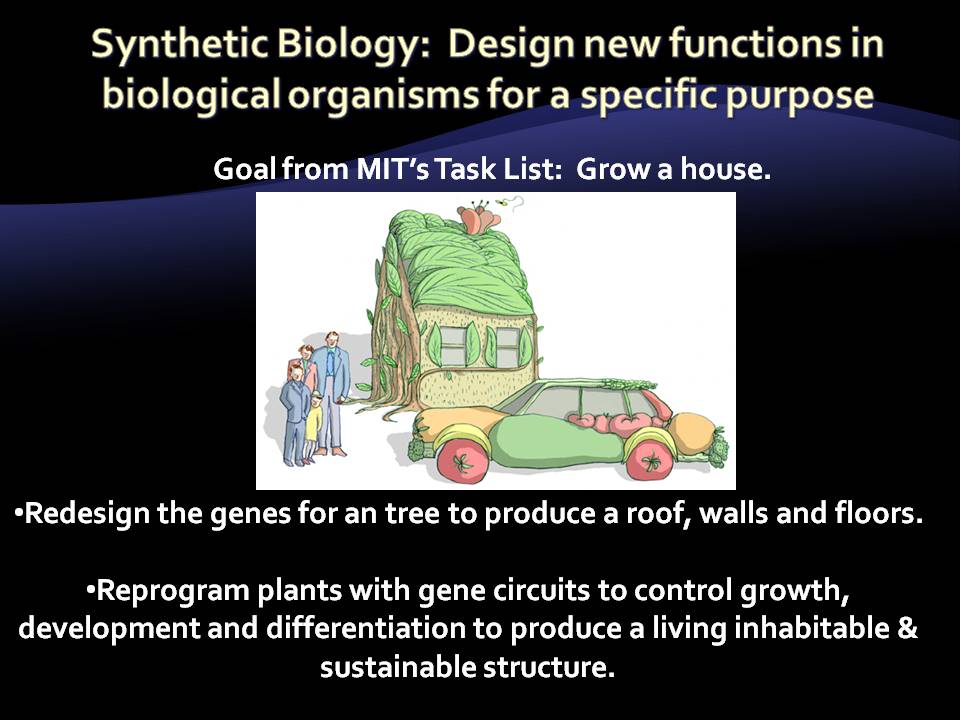What is Synthetic Biology?
Synthetic Biology has different definitions to depending on who you talk with. Wikipedia gives a good one: Synthetic biology is a new area of biological research that combines science and engineering in order to design and build (“synthesize”) novel biological functions and systems. Another definition is a broad approach using tools such as rational and computational design of genes, proteins and genetic systems for a specific purpose.
Think about an analogy to advances in electronics. Early electronics were build for a specific purpose. These well characterized parts (e.g., a resistor) because simple tools that could be built and used for different needs. Electronic parts now form useful tools such as cell phones, computers, microwaves, and underlie much of our everyday life.
Three key concepts in synthetic biology standardization, modularity and abstraction. For more details see: Endy, D. (2005). Foundations for engineering biology. Nature. 438, 449-453.
By applying these principles and using our knowledge of plants we are producing tools for human and environmental use.
Imagine if these fictional goals (below) from a MIT website could be accomplished. While we lack the ability to do this today, this is a challenge to the future and at least an outline of how to do so is evident:

Future Sustainable Living from MIT? Grow your house
This may not be as far out there as it seems. This photo is from a structure in Cambodia.

Plant-Housing Structure in Cambodia
